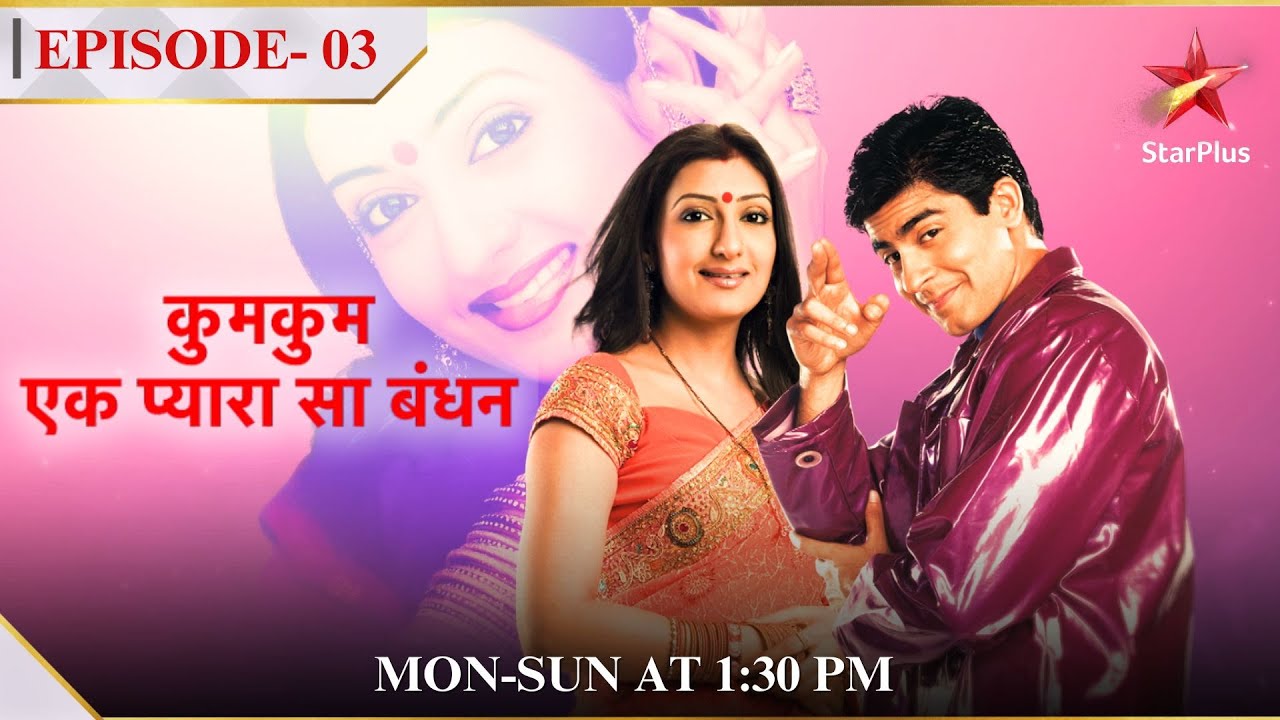Kumkum Drama Review: Kumkum – Ek Pyara Sa Bandhan (English: Kumkum – A Beautiful Bond) is a long-running Indian television drama series that aired on Star Plus from July 2002 to November 2009. Created by Ekta Kapoor’s Balaji Telefilms, the series starred Juhi Parmar and Hussain Kuwajerwala as the central couple, Kumkum and Sumit.
Plot:
The story unfolds around the lives of Kumkum, a strong and independent young woman, and Sumit, a carefree and irresponsible man. They are forced into marriage by their families due to unforeseen circumstances. Initially incompatible, they navigate their complex relationship through clashes, misunderstandings, and gradual growth. The narrative explores themes of societal expectations, love evolving over time, and sacrifices made for family.
Strengths:
- Compelling Characters: Kumkum’s portrayal as a strong and independent woman resonated with viewers, particularly young women seeking role models who challenged societal norms. The character’s growth and development throughout the series were engaging.
- Evolving Love Story: The love story between Kumkum and Sumit starts as forced but gradually develops into a genuine and relatable portrayal of love evolving and maturing through challenges and compromises.
- Family Dynamics: The series beautifully depicted the complexities of family relationships, balancing humor and warmth with the challenges of navigating family expectations and responsibilities.
- Cultural Context: Kumkum catered to a broad audience, reflecting the aspirations and challenges faced by middle-class families in India. It resonated with viewers for its relatable portrayal of everyday life and social nuances.
Weaknesses:
- Lengthy Runtime: Spanning over 1700 episodes, the series was criticized for its excessive length. This sometimes led to repetitive plotlines and a feeling of dragging, impacting the overall pace and viewer engagement.
- Melodramatic Tropes: As with many Indian soap operas, the show relied on melodramatic plot twists and tropes. While these elements were popular with segments of the audience, they could feel excessive and unrealistic to others.
- Shifting Focus: The series initially focused on the central love story but gradually incorporated new characters and storylines. This occasionally shifted the focus away from the core narrative, potentially confusing or alienating some viewers.
Overall Impact:
Despite its limitations, Kumkum remains a significant contributor to Indian television history. It captivated audiences for years with its relatable characters, evolving narrative, and portrayal of societal themes. The series established Juhi Parmar and Hussain Kuwajerwala as household names and paved the way for further exploration of complex female characters and family dynamics on Indian television.
Additional Considerations:
- Cultural Relevance: Understanding the cultural context of Indian soap operas is crucial when evaluating shows like Kumkum. Melodramatic elements and lengthy narratives, while potentially seen as flaws globally, often contribute to viewer engagement within the specific genre.
- Legacy and Fandom: Despite potential criticisms, the show continues to hold a special place in the hearts of many viewers. Dedicated online communities and nostalgic discussions are testaments to its lasting impact and ability to connect with audiences.
Diving Deeper into Kumkum: Examining Criticisms and Legacy
While the previous section provided a comprehensive overview of Kumkum, let’s delve deeper into the criticisms it faced and explore its lasting influence on Indian television.
Criticisms:
- Gender Stereotypes: Despite Kumkum’s portrayal as a strong woman, some critics argued that the series ultimately perpetuated certain gender stereotypes. For example, her sacrifices for her family and adherence to traditional roles, while potentially relatable to certain viewers, could be interpreted as reinforcing societal expectations placed upon women.
- Moral Dilemmas: Certain plotlines presented morally ambiguous situations, with characters taking actions deemed questionable by some viewers. This could lead to ethical discussions and debates about the characters’ choices and the messages conveyed.
- Supernatural Elements: The later seasons of the show incorporated supernatural elements, which some viewers found jarring and inconsistent with the established tone of the earlier seasons. This shift in genre direction alienated some viewers who had initially connected with the show’s more grounded portrayal of family life.
Legacy:
- Pioneering a Genre: Kumkum, alongside other Ekta Kapoor productions, played a pivotal role in shaping the landscape of Indian television by popularizing the long-running soap opera format. This format, with its focus on melodramatic storytelling, family dynamics, and relatable characters, continues to be a mainstay of Indian television.
- Social Commentary: Despite potential criticisms, the series subtly addressed social issues like arranged marriage, domestic violence, and the changing roles of women in society. While not explicitly stated, these themes resonated with viewers and sparked conversations about social realities.
- Cultural Touchstone: Kumkum remains a cultural touchstone for many viewers in India. The show’s characters, dialogues, and iconic moments continue to be referenced and discussed, showcasing its impact on popular culture and collective memory.
Conclusion:
Kumkum offers a captivating glimpse into Indian society and family dynamics. The series, while not without its flaws, resonated with viewers for its relatable characters, evolving storyline, and portrayal of everyday challenges. Its legacy lies in its contribution to shaping the landscape of Indian television and leaving a lasting impression on audiences.










+ There are no comments
Add yours